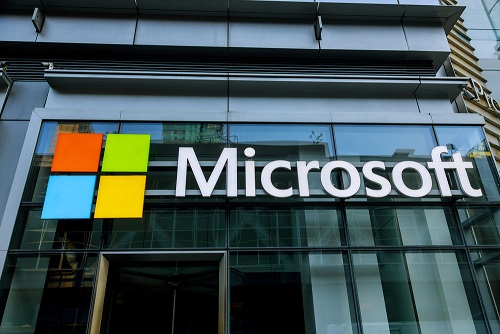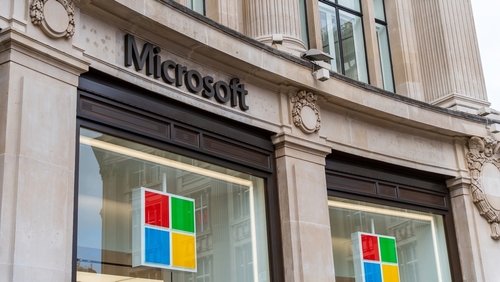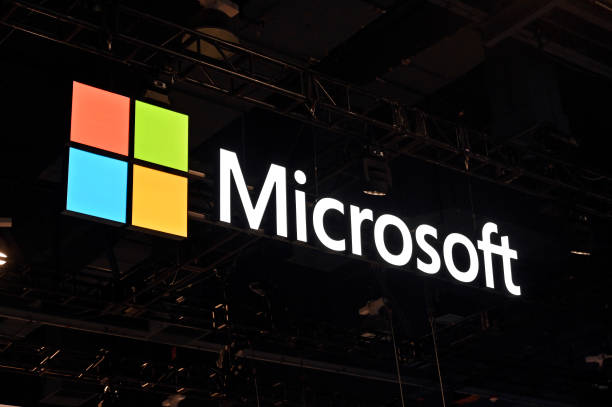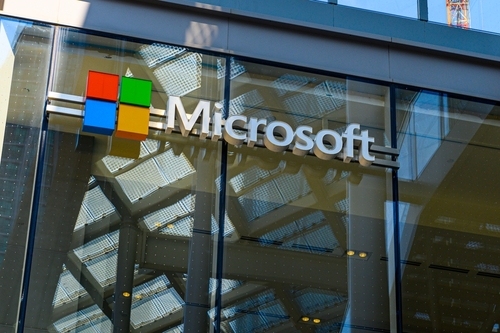Microsoft's Quantum Computing Chip Could Be a Game Changer

There's a type of particle called a Majorana fermion that was hypothesized in 1937. This particle has some unique properties, and it's long been theorized that Majorana particles could prove useful for quantum computing. In a surprise announcement on Wednesday, Microsoft (NASDAQ: MSFT) unveiled a quantum-computing chip, Majorana 1, that successfully harnesses a small number of exotic Majorana particles to encode quantum information.
Microsoft started going down this road nearly 20 years ago, and that research has now yielded what looks like a significant quantum-computing breakthrough. The Majorana 1 chip contains eight qubits, or quantum bits, far fewer than top-tier quantum computers currently in operation.
Start Your Mornings Smarter! Wake up with Breakfast news in your inbox every market day. Sign Up For Free »
However, Microsoft sees a path to scale up the number of qubits to 1 million. At that scale, quantum computing would likely be useful for solving real-world problems.
Progress on a thorny problem
One of the major roadblocks preventing quantum computers from scaling is error correction. Qubits are fragile and can be compromised by various environmental factors. This introduces errors, which can derail a computation before completion. A future quantum computer capable of useful calculations will need a way to correct those errors.
A benefit of the Majorana particles that Microsoft has harnessed is that they tend to be more stable and less susceptible to errors than other approaches to quantum computing. Errors are still introduced, and that will need to be overcome to scale up the chip to 1 million qubits.
The process of measuring the system introduces errors, for example, but Microsoft has already identified ways to reduce these errors. The company is also working on new methods of error correction that will be necessary to boost the qubit count.
What Microsoft has successfully done is demonstrate that quantum information can be encoded using Majorana particles. The next step is to start working toward a quantum chip that's useful.
Microsoft will start with a single-qubit device and build up to devices with larger arrays of qubits, quantum error detection, and eventually, quantum error correction. The property of Majorana particles that tends to protect quantum information will make error correction a simpler affair than previous approaches.
Still many years away
"Microsoft intends to build a fault-tolerant prototype based on topological qubits in years, not decades," reads a Microsoft Azure blog post detailing the Majorana 1 chip. There are two things for investors to understand.
First, there's no telling what complications and issues Microsoft could run into as it works toward quantum error correction with its new quantum-computing technology. "To be clear, continuing to refine those processes and getting all the elements to work together at accelerated scale will require more years of engineering work," Microsoft noted in a separate news release.
Second, going from a prototype to a large-scale quantum computer capable of solving real-world problems could take years in and of itself. The largest quantum computers in operation today are just over 100 qubits in size. Pushing that number up to 1 million will be a huge lift and could be derailed in any number of ways.
Still, the prize if Microsoft beats the competition to useful quantum computing will likely be enormous. Quantum computers could be particularly useful for modeling nature in a way that's simply impossible for even the most powerful supercomputer to achieve. Solving complex problems in chemistry, materials science, and other areas could lead to significant breakthroughs.
By focusing on quantum chips that can easily be installed in its cloud data centers, Microsoft is building the foundation for what could be an enormous new line of business in the long run. Quantum computing could eventually deliver hundreds of billions of dollars of economic value, according to some estimates.
A lot still must go right for Microsoft. It needs to demonstrate full-fledged error correction, then scale up to a qubit count that's useful, while not running into any intractable roadblocks. The company also needs its approach to prove superior to all others. As Microsoft pushes toward useful quantum computing, Alphabet, IBM, and a host of other companies are doing the same.
While useful quantum computing is still many years away, Microsoft may have just accelerated the timeline with its innovative Majorana 1 chip.
Don’t miss this second chance at a potentially lucrative opportunity
Ever feel like you missed the boat in buying the most successful stocks? Then you’ll want to hear this.
On rare occasions, our expert team of analysts issues a “Double Down” stock recommendation for companies that they think are about to pop. If you’re worried you’ve already missed your chance to invest, now is the best time to buy before it’s too late. And the numbers speak for themselves:
- Nvidia: if you invested $1,000 when we doubled down in 2009, you’d have $361,466!*
- Apple: if you invested $1,000 when we doubled down in 2008, you’d have $46,349!*
- Netflix: if you invested $1,000 when we doubled down in 2004, you’d have $558,625!*
Right now, we’re issuing “Double Down” alerts for three incredible companies, and there may not be another chance like this anytime soon.
*Stock Advisor returns as of February 3, 2025
Suzanne Frey, an executive at Alphabet, is a member of The Motley Fool's board of directors. Timothy Green has positions in International Business Machines. The Motley Fool has positions in and recommends Alphabet, International Business Machines, and Microsoft. The Motley Fool recommends the following options: long January 2026 $395 calls on Microsoft and short January 2026 $405 calls on Microsoft. The Motley Fool has a disclosure policy.







